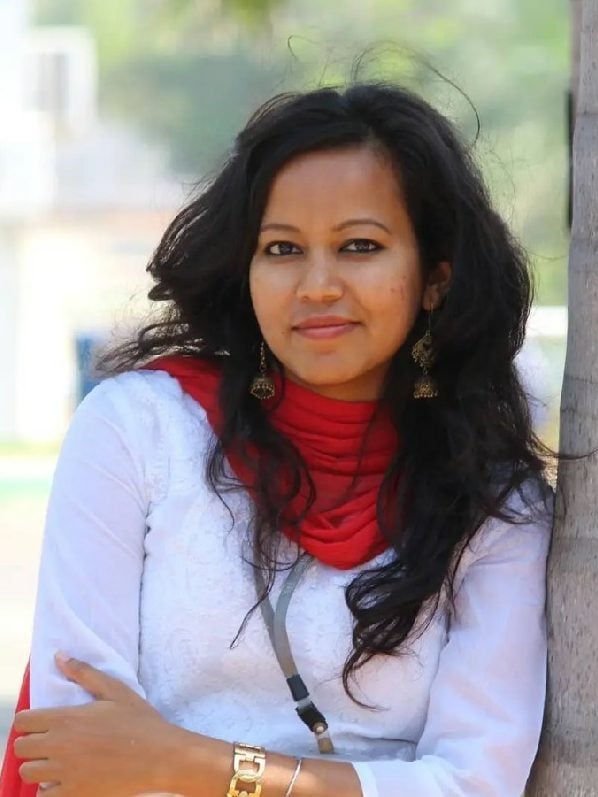With sincere gratitude I extend my heartfelt thanks to Copper Shores Community Health Foundation (CSCHF) for providing me with the opportunity to receive the Graduate Assistantship in Summer 2024.
I am Libia Hazra, a 3rd year full time Ph.D. candidate of Environmental Engineering at the Department of Civil, Environmental and Geospatial Engineering (CEGE), Michigan Technological University, Houghton, Michigan, USA. I work with Dr. Judith A Perlinger and Dr. Noel R. Urban at the Environmental engineering Department. My current research focuses on determining contaminant concentrations of Polychlorinated biphenyles (PCBs) and Mercury (Hg) in fish from Lake Superior and adjacent inland lakes, home to the Keweenaw Bay Indian Community (KBIC), a federally recognized Ojibwe tribe, deeply connected to the land. I am trying to understand the factors such as food web structure and resource availability leading to variations in contaminants concentrations in different lakes by using ecological tracers like Stable Isotope Analysis, e-DNA Metabarcoding. Additionally, I am working on the health for people and fish. Amidst numerous environmental concerns, the difficulties encountered by aquatic life, especially fish, are often overlooked. This transdisciplinary research conducted in partnership with social scientists and tribal members and governmental units will provide critical data about persistent organic pollutants (POPs) in fish. These findings will assist in planning stocking and harvesting practices, reducing exposure to pollutants, ensuring the nutritional and socio-cultural benefits of fish consumption, ultimately improving the public health of the local communities.
I am originally from Kolkata (WB), India. I joined Michigan Technological University in 2022, spring. I stay here with my husband and 6 years old daughter. Before I moved to Michigan Tech, I completed my M.Sc. in Environmental Science at GITAM University, Visakhapatnam, India and worked on toxic analysis in bird and fish tissue from an eminent institute-Salim Ali Centre for Ornithology and Natural History (SACON), India. I served as a lecturer in an undergraduate college, where I taught Environmental Studies. I also have experience working as an administrative assistant in the Clean Combustion Research Center (CCRC) at King Abdullah University of Science and Technology (KAUST), Saudi Arabia. My long-term goal is to contribute significantly to the field of environmental engineering and become a leader in building a sustainable environment and society, by the practical application of scientific and technological solutions. I grew up in a rural part of India and have witnessed firsthand the environmental degradation in all sectors (e.g., air/water/soil pollution) and thoughtless misuse and abuse of natural resources. My state West Bengal, eastern part of India, the cherished cultural connection between fish and humans is facing a formidable challenge due to increasing contamination of aquatic environments. The profound cultural significance of fish, deeply embedded in Bengali traditions and cuisine, is now strained as environmental pollutants jeopardize the health of fish populations. Rampant industrialization, discharge of pollutants, and the presence of heavy metals and persistent organic pollutants in water bodies raise alarming concerns about the safety of consuming fish. This contamination not only poses a threat to the nutritional value of fish, a staple in the Bengali diet, but also undermines the livelihoods of fishing communities and breaks the intricate link between fish and ceremonial practices. In future, I would like to extend my research in my country and contribute significantly.
At Michigan Tech, I am not only gaining valuable knowledge and skills through coursework, literature review, and research endeavors but also emphasizing the importance of effective communication. I firmly believe that fostering community awareness and engagement is essential for promoting environmental health and sustainability. This fellowship provides me with the opportunity to further expand my research and engage in meaningful community outreach efforts. I am eager to leverage this assistantship to advance my research objectives and contribute positively to both academia and society.
Once again, thank you very much CSCHF for your generous support and confidence in my research endeavors. I am tankful to my advisors for their valuable support. I am also thankful to my husband and my daughter for their constant support and love.
